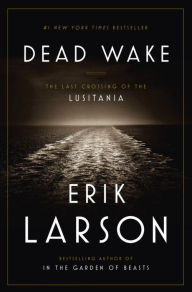I just finished reading Erik Larson’s Dead Wake, a story of the last crossing of the Lusitania, a luxurious and civilian British ocean liner torpedoed by a German U-boat during World War I. Considered one of the fastest and most renowned ships at the time, it seemed to operate with an air of invincibility surrounding it, similar to the Titanic. The owners and handlers of the Lusitania, Cunard (which still exists today), did not appear to take the necessary precautions to protect their flagship during a time of war, failing to insist to the British admiralty the need to escort the ship home in waters that Germany had declared a war zone. Furthermore, the fact that other ships had been sunk in the same waters as the Lusitania and that British intelligence was actually tracking the movements of the U-boat that would ultimately sink the great ship, it seemed clear that this was a tragedy that easily could have been avoided. As Larson points out, however, there were a myriad amount of chance factors, both large and small, that contributed to the disaster.
Of course, it is also quite obvious that Germany and its naval forces shoulder the majority of the blame in the sinking of the Lusitania, having declared any ship, civilian included, fair game during a time of war. Their callous disregard for human life and emphasis on sheer tonnage sunk compelled their stable of U-boat captains to not differentiate between enemy ships carrying troops and munitions from those passenger liners and merchant ships not involved in the war.
As he did in the other books I’ve read of Larson’s (The Devil in the White City and In the Garden of Beasts), the author paints a vivid portrait of daily life and world events surrounding his subject matter. I love Larson’s attention to detail, even seemingly the most insignificant and mundane, as every bit establishes a haunting atmosphere and whisks you away to a different time and place, making you feel like you are experiencing everything that his subjects are feeling and thinking in real time. I was almost disappointed when Larson ended the book the way he did, as American destroyers began steaming their way to Europe around two years after the sinking, signifying their entrance into the war. Another great read, however, from Larson, who is becoming a master of historic events, both large and small.

